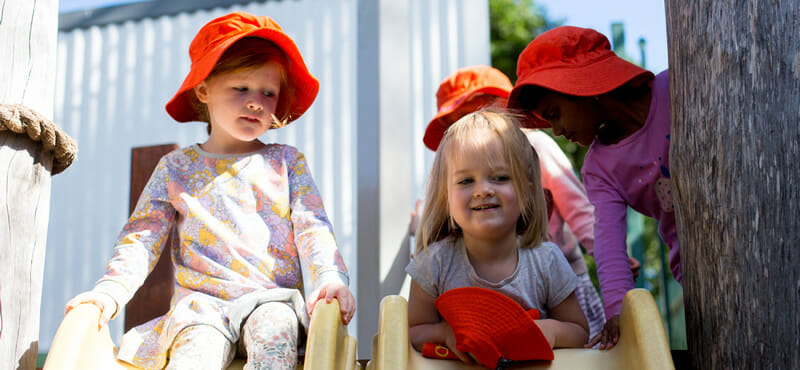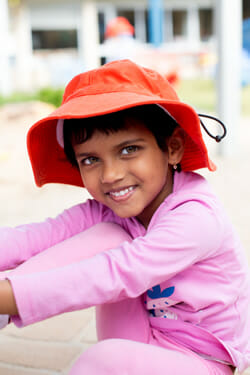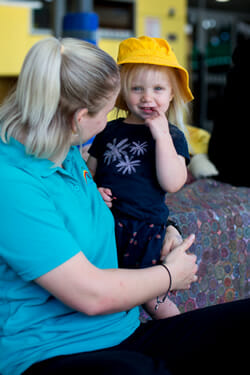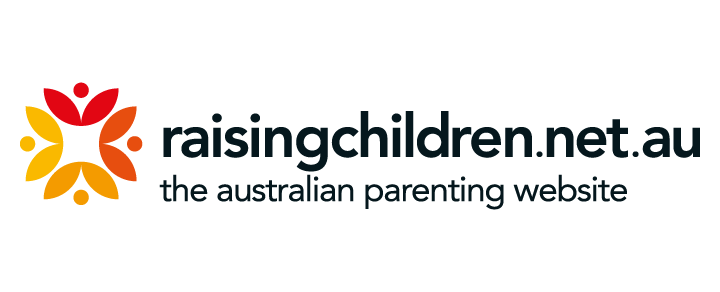
Building a strong sense of well-being
Life happens. It’s how we deal with it that matters and how it impacts our well-being and those around us. Some events are within our control, and some are out of our control. We can either react or respond, which is the difference with how it affects our well-being. What guides us in how we respond? It’s usually from our upbringing, beliefs, experiences, and the tools we learned to deal with and cope with different events. That’s why it’s so important to start teaching your child to create a strong sense of well-being from an early age
What is well-being?
Well-being is a combination of physical, psychological and social factors. It’s not about being well and happy all the time. Well-being helps people to deal with disappointments and difficult times in life. Resilience plays a significant role in helping people to bounce back after dealing with emotional challenges and trauma. Without a strong sense of well-being, it is difficult to have a sense of belonging, trust others and feel confident in being, and optimistically engage in experiences that contribute to becoming. (Early Years Learning Framework.)
5 Ways to well-being
The 5 ways of well-being is an initiative of the Royal Melbourne Hospital that developed the following points, based on research, to help improve well-being
Why is well-being important in your child’s life?
Well-being helps your child to cope with everyday stresses. It allows them to develop emotional and social skills for the future. It helps to build their resilience, independence, decision making and conflict resolution strategies.

How can you help?
Parental guidance is paramount and complements overall experiences and external influences. You can help your child to develop their well-being by connecting and talking to your child every day. Ask your child how they feel, to allow them to understand their feelings and explore ways to resolve any problems. Mostly talk about the positive outcomes from their day, and focus on those – helping to develop a healthy and positive mindset… to look on the bright side. This doesn’t mean dismissing issues; it’s just helping to wire their brains to think mainly about the positive things that happened rather than focusing on the negative things.
Spend time with your child by going for a walk, playing with them or cooking/eating together. This creates an excellent opportunity to connect and chat informally.
Encourage open communication about tough topics such as natural disasters, death or divorce, for example. Talking about complex matters helps your child reflect, communicate and resolve issues which helps build resilience.
With a younger child, it may be a case of focusing on how they feel, whether they are happy, sad, angry or afraid and providing them with the reassurance they need. Often these conversations can be led through storytime, using books that provide similarities in situations or simply saying how you feel about an event and asking questions.
Building resilience
Be supportive and encouraging, offering praise where relevant and patience to listen. Give your child lots of opportunities to play outside, immersed in nature, where they can improve their physical confidence and coordination, developing their motor skills. That could include playing at the park, jumping, skipping, climbing, walking or running. Let your child choose what they want to wear and dress themselves where they can – perhaps buying slip-on clothes with elasticated waists, to begin with, instead of buttons and zippers or letting them go to the toilet by themselves. It can be the simplest of activities that build confidence and resilience.
Social & emotional indicators for school readiness
Look out for the following indicators of your child’s well-being, asking yourself if your child can:
- Confidently ask for what they need and want?
- Cooperate with their peers during play?
- Resolve conflicts with their peers using their words?
- Regulate their emotions?
- Take their turn and share?
- Follow and play games with rules with peers?
- Initiate and maintain play with a peer?
St Joseph’s Family Services Programs
One of the main focuses in our centres is on children’s social-emotional well-being or their ‘emotional intelligence’. Emotional intelligence and the strategies children learn in Early Childhood help set them up for building a large ‘toolbox’ of experiences and ideas to draw on and set them up for future success and well-being. We spontaneously teach and scaffold children’s social skills throughout the day as well as intentionally plan the use of social skills programs and emotional awareness learning experiences.
As teachers and parents, we model how we solve problems ourselves, for our children, as they learn from how we handle tricky or stressful situations. For example, when trying to fix something that’s broken:
“This looks tricky to fix, but I’m going to try my best…no that didn’t work …let me try something else…there we go, fixed it!”
Developing empathy & kindness
We are teaching the children perseverance and persistence. We also teach children how to identify feelings in themselves and others:
- Do you have butterflies in your tummy?
- Do you have a racing heartbeat?
- Do you have your face scrunched up and tight fists?
- Are you feeling nervous, scared or angry?
We help children to identify and label these feelings and let them know it’s good to talk to a grown-up about these feelings. We look at faces in mirrors and books with our youngest children and talk about ‘happy’ or ‘sad’ faces. With older children, we want them to be able to identify their friends’ feelings:
- Does your friend look worried or upset?
- Can you help them by asking them to play with you, or can you offer them a toy to play with?
This is the development of empathy and kindness as they can identify others’ feelings.
As part of our transition to school calendar topics, the Worry Woos program is incorporated into our centres to develop negotiation, turn-taking, and conflict resolution skills. We use the child protection safe series books to help recognise feelings and emotions. We include child protection week in September and RU ok day in September.

Problem solving
We model for children how to solve issues with peers, problem solve and think for themselves. At home you might talk through possible scenarios of issues with peers by using dolls, puppets or books. When faced with real challenges, we want children to draw on a wide array of possible solutions.
We want to nurture children to have positive self-esteem, so we praise their efforts and achievements and encourage their attempts and safe risk-taking. We want children to have the confidence and resilience to try something new. Perhaps it’s trying a new sport, swinging from a rope or participating in a new group game. We recognise each child is an individual, so they all have different achievements to celebrate at their own individual pace.
Keeping calm
We incorporate daily relaxation times or YOGA to help children understand the importance of our bodies having some relaxing time to calm down, re-energise, and get ready to play again later. We teach children to think of different options like deep breathing or bubble blowing,star jumps or going for a lap around the playground if they feel angry or upset. Focusing on and controlling our breathing can help calm our bodies down.
What are your favourite strategies for calming yourself down? Perhaps your child is learning that strategy just by watching your behaviours. Is this a skill or technique you can deliberately teach or share with your child too?
To sum it up, our educators promote this learning by:
- Showing genuine affection, understanding and respect for all children.
- Collaborating with children to document their achievements and share their successes with their families.
- Ensuring all children experience pride in their attempts and achievements.
- Promoting children’s sense of belonging, connectedness and well-being.
- Challenging and supporting children to engage in and persevere at tasks and play.
- Building upon and extending children’s ideas.
- Maintaining high expectations of each child’s capabilities.
- Valuing children’s personal decision-making.
- Welcoming the sharing of children and families’ cultural aspects and spiritual lives.
- Talking with children about their emotions and responses to events with a view to supporting their understandings of emotional regulation and self-control.
- Acknowledging and affirming children’s efforts and growth.
- Mediating and assisting children to negotiate their rights in relation to the rights of others.
For more information, please contact us.







Leave A Comment